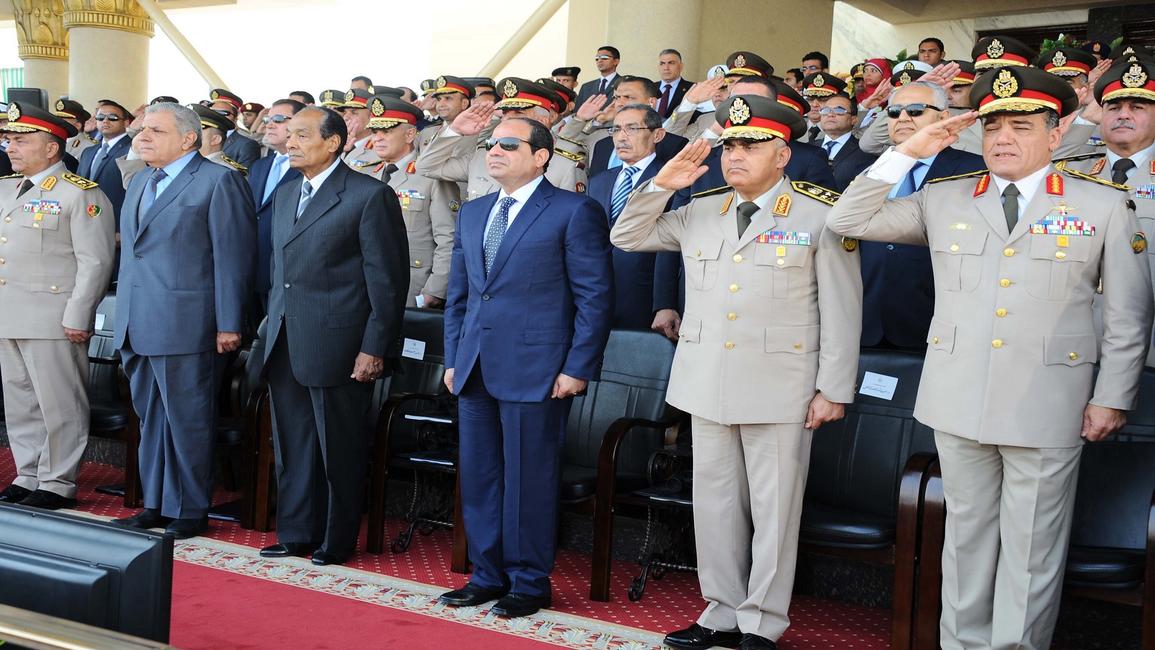Egypt passes new anti-terror laws amid worsening security
President Abd al-Fattah al-Sisi, who vowed to adopt tougher measures following the killing of state prosecutor Hisham Barakat is expected to swiftly ratify the law.
Sisi gave an emotional televised speech promising “rapid justice” against imprisoned members of the blacklisted Muslim Brotherhood, on Tuesday, at Barakat's funeral procession.
“A death sentence will be issued, a death sentence will be implemented. A life sentence will be issued, a life sentence will be implemented," he said, referring to the hundred of death sentences handed down to alleged members of the now banned Muslim Brotherhood, including former president Mohammad Morsi.
Under the new laws the president will now be able to sign off on national security rulings without defendants being granted an appeal.
This means the executions of the Brotherhood’s leadership can be carried out any time after the draft law is ratified by Sisi.
| Highlights of new laws | |
|
- The president can now sign off on national security rulings without defendants being granted an appeal - 10-25 year sentences for individuals seeking to topple the regime or change the country’s constitution - 25 years up to the death penalty for anyone who starts, organizes, manages or leads a terrorist group - 5 year sentences to anyone convicted of using social media or the internet to promote ideas or beliefs leading to terrorist acts, impede state officials, or communicate with terrorist groups - The president has the right to impose a curfew, isolate or evict residents from an area should that area be exposed to an act of terror |
Wednesday saw the 'worst ever' attack in Egypt's Sinai with reports of at least 80 people being killed when militants staged simultaneous attacks, including a suicide car bombing, on army checkpoints in Northern Sinai.
Security forces raided an apartment in Cairo, also on Wednesday, and shot dead nine Brotherhood members for allegedly planning ‘terrorist plots’.
The government has blamed Barakat’s assassination on the banned Muslim Brotherhood, although the group has denied any involvement in the killling.
The army has said 17 service members and 100 militants were killed in the terrorist attacks in Sheikh Zuweid.
Other sources put the number of troops killed mujch higher.
In July 2013, then army chief Sisi deposed his Islamist predecessor Morsi, and overseen a brutal crackdown on his supporters, leaving hundreds dead and thousands jailed.
Wednesday's draft law will provide "means to drain the sources of terrorism financing," a cabinet statement said.
Minister of Transitional Justice Ibrahim Henaidy told state-run al-Ahram newspaper that the new law will "stipulate harsher punishment" to those convicted of "belonging to a terrorist group...committing terrorist acts or had used violence".
The proposed law will also widen the powers of "investigators of terrorist crimes," grant new authorities to the prosecution, and "facilitate procedures to inspect and examine bank accounts," of suspects, Henaidy said.
Human rights groups, inclduing Amnesty International and Human Rights Watch say that Egypt has regressed to an all out state of repession since Sisi came to power.



